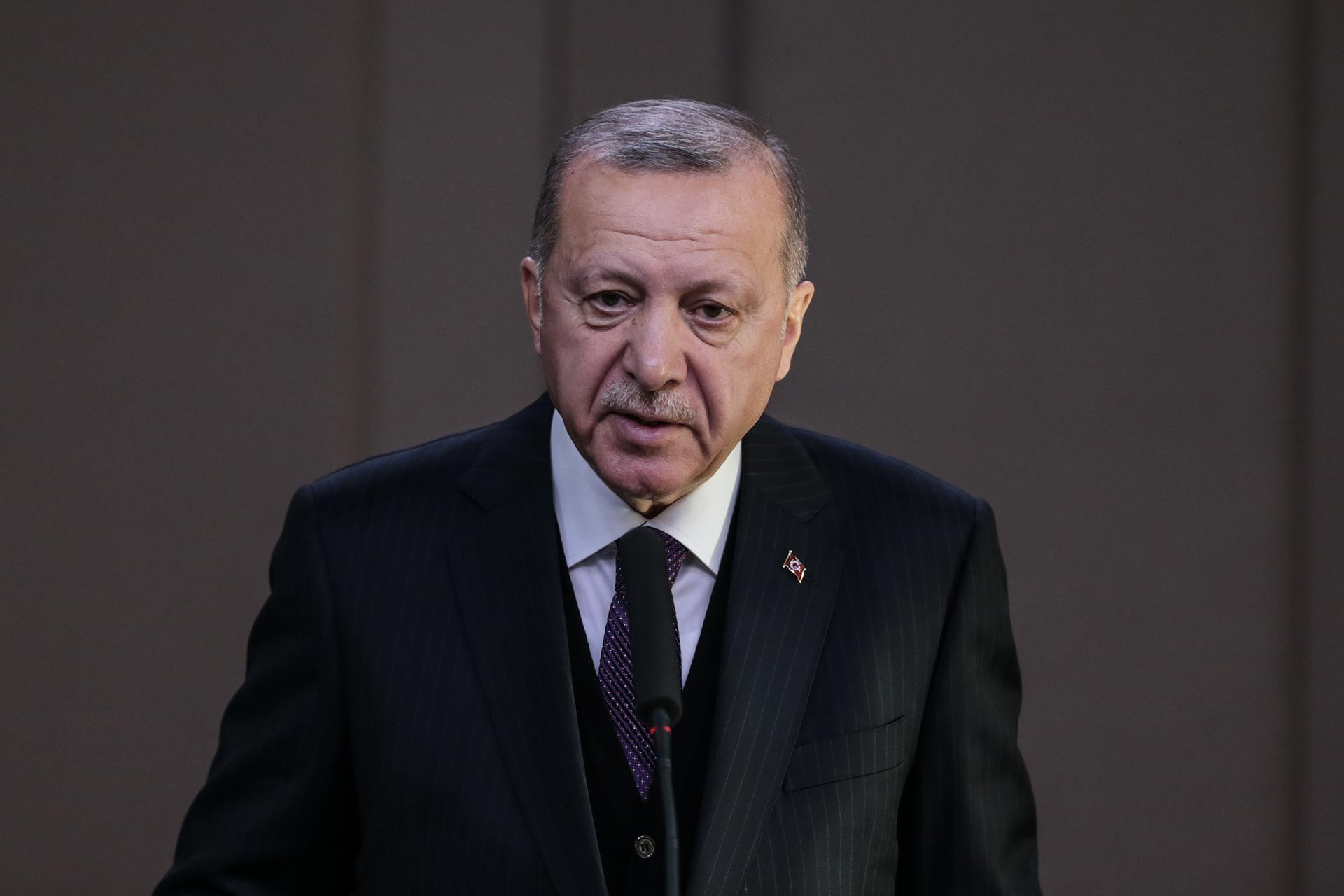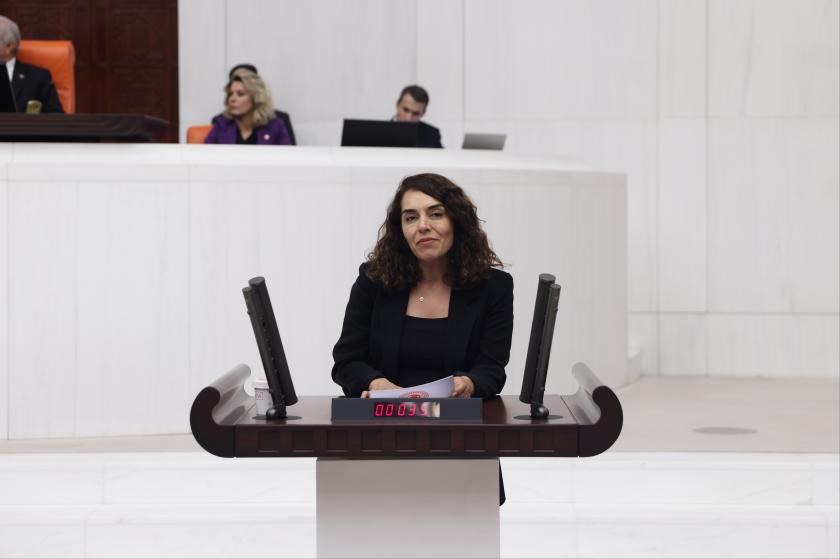AKP drafting law to attach local authorities to the “single man”
Since the local election we have witnessed the law actually being broken as local authorities come under trusteeship and economic-political embargo with their powers and areas of responsibility being restricted, and will obviously continue to do so.

Fotoğraf: Metin Aktas/AA
The AKP’s Deputy General Chair with responsibility for Local Authorities, Mehmet Özhaseki, has announced that the “local authority reform” bill they have drafted will be brought before parliament in January.
AKP propaganda never tires of propagandizing that the huge problems of local authorities will be solved through “local authority reform” or, indeed, until recently that this would be made into the main plank of the development of democracy with local authorities strengthened vis à vis the central administration. But, its agenda filled with establishing the single-man administration, AKP propaganda has fallen silent on the connection between local authorities and democracy. Above all, with a silence of the rhetoric on the relationship between democratization and local authorities since the 31 March election and the subsequent 23 June Istanbul election, we have witnessed the law actually being broken as local authorities come under trusteeship and economic-political embargo with their powers and areas of responsibility being restricted, and will obviously continue to do so.
THE MINISTRY IS THE “SUPERIOR INSTITUTION” TO WHICH LOCAL AUTHORITIES ARE AFFILIATED!
Interesting as it is, Özhaseki’s announcement in this regard is actually equally indicative of the problem encountered when it comes to articulating the position in relation to local authorities the AKP has assumed.
Responding to criticism that the law it was sought to enact would limit municipalities’ powers, Özhaseki said, “I am a person who has spent his life in the municipal arena. I am in principle opposed to municipalities’ functions being taken and accumulated in the centre. Planning authority in principal rests with municipal assemblies. The people of a particular city want whatever they think about the development of their own city to be implemented and this is their most natural of rights, too. But this can never mean that this is unbridled and there is no accountability to anywhere. So, who is to supervise for compliance with statute and the law? That is the ministry as a superior institution.”
In this paragraph I have cited verbatim, we see Özhaseki confessing with his words:
- By setting out with “I”, that he is the “authority” in this matter,
- By saying, “I am in principle opposed to municipalities’ functions being taken and accumulated in the centre,” that he is saying he thinks like everyone else and he aspires to attain credibility,
- By saying “but” after having told the truth, that he is concealing his having reached the actual crux of the matter by making it look like an insignificant detail, and
- Having said, “But this can never mean that this is unbridled and there is no accountability to anywhere,” that the main aim is: “So, who is to supervise for compliance with statute and the law? That is the ministry as a superior institution.”
THE SPIRIT OF KENAN EVREN LIVES ON IN ÖZHASEKİ
In terms not just of its content but the chain of ideas in his comment, Özhaseki’s one-paragraph explanation in this regard shows that he is speaking as the spokesman of an autocratic regime (the most significant example from our midst of this kind of reasoning is Kenan Evren).
Words fail when it comes to the reply given to the question of who is to supervise municipalities governed by electees.
This is because Özhaseki portrays ministers appointed by and civil servants appointed by the President as being a “superior office to municipalities governed by electees” and asserts that supervision of municipalities is to be done by the ministry.
However, everywhere where a degree of democracy can be spoken of, the principle that elected persons can only be ousted by the electorate reigns. Otherwise, there can be no mention of the right to vote and stand for election.
The depiction by Özhaseki and the AKP of electees being supervised by appointed officers in the “local authorities bill” that has obviously been drafted in consultation with the Presidency as being a perfectly natural thing that can stand the test of public scrutiny also provides pointers, not only as to what Özhaseki and his party understand by democracy, but as to the nature of the channel into which local authorities will be thrust as the single-party, single-man regime is set up.
IF THERE IS NO DEMOCRACY STRUGGLE THESE WILL ALSO BECOME LONGED-FOR DAYS
When consideration is given to the difference in mentality in Özhaseki’s pronouncements on local authorities as opposed to what the Land Registry Law (*) says, local authorities’ current woes are not restricted to the appointing of trustees to opposition municipalities or their being made inoperable under economic-political siege. On the contrary, the Erdoğan administration has moved into action to render local authorities functionless under the statutory measures to be taken and to attach their “powers” and “local graft” to the single-man regime.
And because of this:
if opposition mayors and their administrations, who speak of their wish for more democratic local administrations in the face of the ruling powers’ oppression, confine their opposition to today’s position of, “The ruling powers prevent public banks from giving us loans,” “Municipal assemblies do not permit us to secure funds,” and “We have become obliged to seek external loans,” and
if Turkey’s progressive democratic forces do not see the struggle for the democratization of local authorities as part of Turkey’s democratization and deal with developments directly, it is not hard to see that they will end up longing for these days, too, tomorrow.
This is because it is obvious from Wednesday how Thursday will shape out.
(*) Özhaseki said the amendment to the Land Registry Law would be brought before parliament in a proposed amendment to the Land Registry Law that the Ministry of Environment and Urban Planning was drafting. A pointer was thereby given that the matter of planning is also to be removed from municipalities’ jurisdiction.







Evrensel'i Takip Et